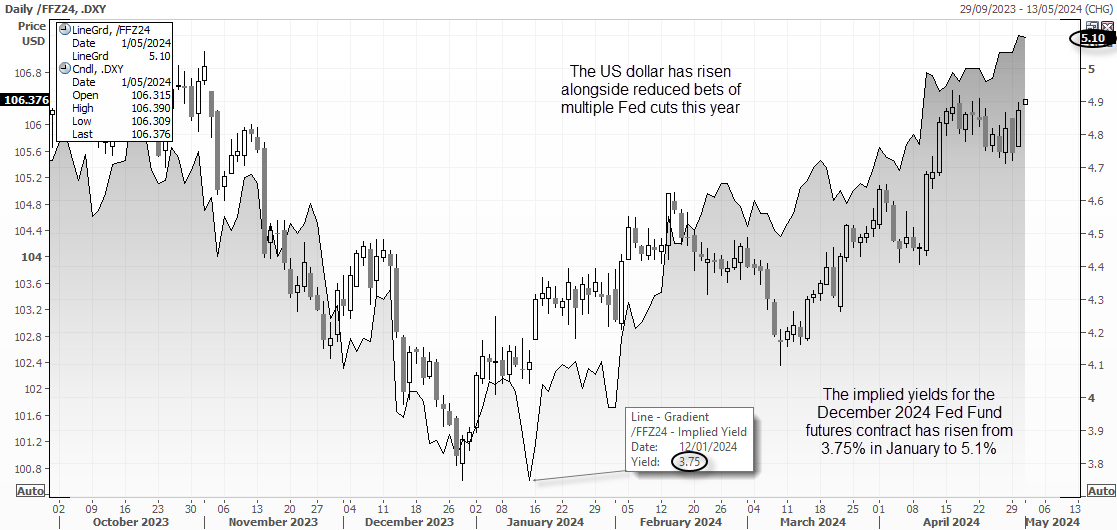The UK economy is running out of places to look for good news as its economy continues to struggle with inflation while its neighbors in Europe leave rising prices on the back burner. It is now likely to affect the country’s growth prospects.
The Organization for Economic Cooperation and Development (OECD) published this Thursday its latest forecast for developed countries and it was not a pleasant reading for the United Kingdom.
The country was one of the few countries where the organization downgraded its outlook, which is now expected to grow by 0.4% instead of the previous 0.7%.
Although its economy is expected to grow faster than Germany, which is expected to expand by just 0.2% this year, the UK is losing more ground to the Eurozone, which together is forecast to grow by 0.7 % in 2024.
It is the latest worrying data point for the UK, which is struggling to shake off high inflation and is still feeling the effects of a reputational blow from the 2022 budget crisis.
At least it led analysts to find an easy way to sum up the beleaguered nation, according to Jens Eisenschmidt, Morgan Stanley’s chief economist for Europe.
“Think of Europe, but everything a little worse,” is how Eisenschmidt describes the UK’s current economic situation.
It is a sentiment that is evident in the latest OECD perspectives, and which has the country’s political leaders on edge.
The UK’s central bank, the Bank of England, is expected to be slower to exit the bloc than the European Central Bank (ECB) in introducing interest rate cuts to stimulate growth, says Eisenschmidt.
The UK is experiencing stickier inflation than its European peers. Prices rose 2.4% in the eurozone in April, while the UK CPI rate was 3.4% in March, giving the former a quicker path to cutting interest rates.
Eisenschmidt said the source of this stickier inflation was up for debate. However, the blame could lie with a growing unemployment crisis in the UK
Economic inactivity has increased in the country, accelerated by the growing trend of long-term illness and youth unemployment.
The country has not been able to benefit from migration flows to compensate for a tight labor market, unlike the European Union’s common market.
As a small open economy, the UK has also been more vulnerable than the EU to capital flight following market shocks, as outlined in the September 2022 currency budget.
Eisenschmidt said these pressures left the UK “more exposed to the need for domestic discipline” in the short term.
The outcome of this year’s UK general election, the date of which is pending, is another major near-term variable affecting the economy’s fortunes.
Aging populations
A trend in labor market flows that has a disproportionate impact on economic performance is something the UK should get used to.
Eisenschmidt said developed European nations share a common threat of population aging. As the population ages, developed economies are expected to struggle with labor shortages, exacerbated by the need for labor to care for older citizens.
Increasingly, as Eisenschmidt points out, countries will increasingly rely on immigration from younger countries to fill gaps in the labor market.
The UK, however, has developed a reputation for being introverted in recent years. The country voted to leave the European Union in 2016 in a debate that has largely focused on levels of immigration from elsewhere in the EU.
Domestically, a crucible issue in recent months has been the government’s controversial plan to deport asylum seekers to Rwanda.
Despite this, total immigration to the UK has steadily increased since the UK’s Brexit vote. Net migration, however, slowed as more people left the country after the vote.
One bright side for the country, however, is that despite his own attitude towards immigration, Eisenschmidt says the UK still looks like one of the best places for foreign residents.
“A key measure of long-term success or less relative decline is their ability to attract migrants and incorporate them into the workforce.
“I would say here, from my perspective, the UK doesn’t score that badly, simply because of the language and the great educational institutions that have great brand value outside.”
#economy #contemplate #longterm #irrelevance #immigration






